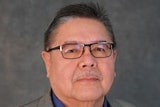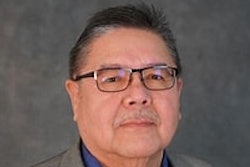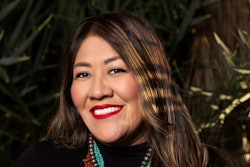Over the past few weeks, I – as I am sure is the case with many other socially conscious people – have become overwhelmed with what seems is the increasing number of racial-tinged incidents that seem to be occurring with unrelenting ferocity.
White graduate student calls cops on Black graduate student for napping in a room in the dormitory that she lives in.
Black men being arrested at Starbucks while waiting for a business associate.
Young Black woman being aggressively manhandled at an Alabama Waffle House because she asked why she had to pay for utensils.
Two Black teens being racially profiled while shopping for prom clothes at a high-end department store.
Two Native American teenagers being questioned by campus police for looking suspect.
A Black teenage boy almost being shot and killed simply for knocking on a door and asking for directions.
A high-achieving young Black man being attacked by news anchors for applying to, as they saw it, “too many schools.”
A 65-year-old Black grandmother is roughed up and cursed at by a police officer in Atlanta.
A White woman in California calls the cops on a Black family who is grilling at a campsite.
A young Black man being roughed up at the Waffle House by a big burly police officer for no apparent reason.
A Black Navy vet being brutally attacked and put in a chokehold by a security guard-bouncer during a minor altercation.
The granddaughter of reggae legend Bob Marley, Donisha Prendergast, and friends being surrounded and interrogated by police.
A South Carolina man who attempted to hire a White Supremacist to kill his Black neighbor and burn a cross in the neighbor’s yard.
The list goes on. It’s enough to give you whiplash.
You can hardly pick up the newspaper, turn on the television, listen to the radio, peruse the Internet or engage in some form of social media without seeing, hearing or witnessing the ongoing and literally daily incidents that have been occurring and affecting Black and, in some cases, other non-White Americans. Indeed, it appears that being a person of color, especially a Black person, has made one ripe for particular and potential ire from various hostile segments of the public.
Over the past few decades, many Black Americans would discuss the fact that it was potentially hazardous to be driving in certain areas or parts of the nation. This regressive phenomenon was referred to as “driving while Black.” The fact is that the intense and endemic, historical racism in many sundown towns (particularly in the South and Midwest) made this concern a legitimate reality. Today, it appears that we can add a number of other “supposed infractions” to the list: shopping while Black, waiting in coffeehouses while Black, golfing too slowly while Black, buying clothes at high-end stores while Black, going to the gym while Black, Air BnBing while Black, drinking iced tea while Black, getting locked out of your home while Black, napping while Black, having loud conversations while Black, laughing while Black, thrift-shopping while Black and, most recently, napping while Black.
We can only speculate on what will be next. However, given the current climate, something will occur fast and likely with blindsiding speed.
The anger among many segments of Black America (and many non-Whites as well, for that matter) is understandable. To be fair, there are Whites who have made it clear of their displeasure with the current state of affairs. It is an emotionally taxing time. To paraphrase one of the greatest black intellectuals and cultural critics of the 20th century, James Baldwin, to be Black and racially conscious in America is to be in an ongoing state of controlled and contained rage. It is like wearing a scarlet letter. In many respects, it is living in an Orwellian state of existence.
In the case of Yale graduate student Lolade Siyonbola, she was interrogated for more than 15 minutes. Her anger, frustration and resentment at being unjustly questioned was understandable. She was being unnecessarily harassed. It is important to note that Sarah Braasch, the White student who called the police on Ms. Siyonbola, has a history of targeting, menacing and calling law enforcement on non-White students as well as a penchant for racial based theories.
Fortunately, as several news outlets announced, the Yale police officers involved in the incident did admonish Braasch for her racist behavior. This was good to hear.
The neighbor who contacted cops on Donisha Prendergast and her group said she did so due to the fact that they refused to speak to her and ignored her! Really Can you imagine if everyone did this to their neighbors or the people next door who ignored them?
The fact was that Ms. Prendergast and her posse were minding their own business and the woman in question should have done the same instead of being a troublemaking, potentially nosy Rosie.
One can only imagine the level of humiliation and demoralization that engulfed Thomas and Lloyd Gray, the two teenage Native American brothers who were pulled from the group of students as they toured Colorado State University. It has become a sad state of affairs.
Whether it be at high-end department stores, restaurant chains, downtown coffeehouses, public parks, dance clubs, leafy suburbs and other venues, it seems that like every day, there is a story of a White person who has decided to target a non-White person for racial profiling due to the fact that they see the person of color as “infringing” or “trespassing” or the person in question makes them “uncomfortable.” Whether they realize it or not, such blatant racist assaults often jeopardize the physical safety of people of color let alone their emotional and psychological well-being. More than a few non-Whites have faced an untimely death due to the often irrational and misplaced fear of bigoted Whites. This has to stop.
Over the past few weeks, there have been more than a few people of all racial groups, among them some journalists such as Rochelle Riley of the Detroit Free Press, who have made the argument that calling the police on people because of their race should be a crime. I agree.
I also would add that repeat offenders should get jail time. Perhaps getting a potent dose of their own racist, poisonous medicine would cause such bigoted people to pause before engaging in such perversely racist behavior.
Dr. Elwood Watson is a professor of history, African-American studies and gender studies at East Tennessee State University.















